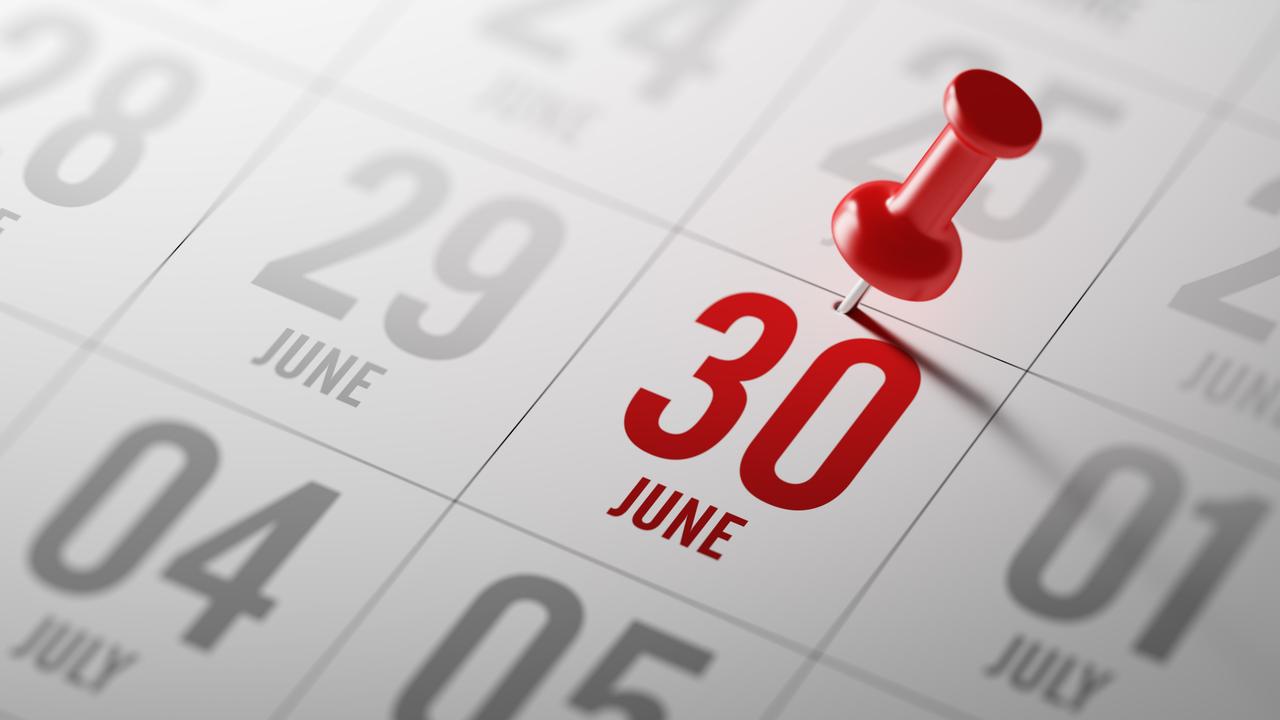How to reduce the amount of tax you pay in Australia
Now is the perfect time to get your finances in order so you don’t miss out on saving yourself some money at tax time.

These products are hand-picked by our team to help make shopping easier. We may receive payments from third parties for sharing this content and when you purchase through links in this article. Product prices and offer details are not assured, and should be confirmed independently with the retailer. Learn more
While doing taxes isn’t the most fun activity, setting aside some time now to get your finances in order can leave you with some unexpected extra savings down the track.
By learning how and what to claim during tax time, you can keep more money in your pocket.
If you want to get ahead on your finances, there are 10 easy steps that can help you at tax time.

1. Keep detailed and accurate records
If you don’t have an organised filing system for all your financial records, it may cause a headache during tax time.
Director of Accounting Heart Chartered Accountants Sonia Gibson said you need to keep receipts, invoices and any contracts you have collected during the year.
“If you don’t keep proper records, you can’t claim a tax deduction if you can’t substantiate your expenses to the Australian Taxation Office,” she said.
2. Donate to charity
If you’re thinking about a meaningful way to spend your hard-earned money, donating to a charity can be the answer.
Every donation greater than $2 is tax deductible, but only if the charity is registered as a tax deductible gift recipient.
“I’ve seen people who donated to door knock appeals but didn’t receive a receipt so they couldn’t claim their donation,” Ms Gibson said.
“So unless you have a receipt from the charity to confirm they received your donation and it’s $2 or more tax deductible, then you can’t claim your tax deduction.”
3. Claim working from home deductions
For thousands of Australians, working from home has become the new normal and there are numerous ways to claim the hours worked at tax time.
Independent Financial Adviser Jacie Taylor recommends keeping a record of your hours.
“Go through and work out the hours that you worked from home and that can end up being quite a substantial amount that you get to claim and bring your taxable income down by,” she said.
By using the Australian Taxation Office’s fixed rate method, you can claim 52 cents for each hour you worked from home.
Ms Gibson recommends also keeping a record of work-related expenses and running costs for potential tax deductions.
“So 52 cents multiplied by the number of hours that you work from home is that amount you put in your tax return to claim a tax reduction on,” she said.
4. Get private health insurance
Whether you need private health insurance depends entirely on your own personal priorities and circumstances, but there may be tax implications for some people without private health insurance.
The Medicare Levy Surcharge (MLS) is a tax penalty for higher income earners who do not have private hospital cover but earn over a certain taxable income.
This surcharge is on top of the two per cent Medicare Levy – a compulsory tax for all taxpayers, regardless of total taxable income (with some exemptions).
The MLS is calculated on two income thresholds – single and family – and increases across four income tiers. It kicks in when a single person earns more than $90,000 or a family’s combined taxable income is more than $180,000. For families who have two or more dependent children, the family income threshold is increased by $1500 each after the first one.
To avoid paying the MLS, people are encouraged to purchase private hospital cover, which can offer some singles and couples savings come tax time.
5. Contribute to your superannuation
Before tax time rolls around, Ms Taylor recommends reviewing your super and consider making concessional contributions to your account that will be taxed at only 15%.
For example, if you have an income of $100,000 your tax rate is 34.5%, including the Medicare levy.
So, if you were to contribute $5,000 as a concessional payment, that amount would be taxed at 15% rather than 34.5%, saving you $975.
Ms Taylor added that by doing these concessional payments it also decreases your entire taxable income.
“If you have spare money lying around, you can put that into super then claim a tax deduction for it,” she said.
“For example, if you have a spare $5,000 lying around and you put that into super, instead of your taxable income being $100,000 it would only be $95,000,” she said.
The main restriction is that you can contribute only $27,500 per year – including your employer’s 10 per cent contribution and any personal contributions.

6. Complete additional training and learning
Consider boosting your skills with professional development and training to claim back at tax time.
“The training must be to maintain or increase your knowledge or skills to earn income in your current employment, it can’t be to change occupation or employment,” Ms Gibson said.
Another way to reduce your tax is to subscribe to professional magazines or associations for your industry to claim a tax reduction – but make sure to have a receipt to substantiate your expense.
7. Chose who to invest assets under
If you’re in a relationship, it’s worth considering who’s name to invest your next asset under to save on tax payments.
Ms Taylor recommends investing in the name of the lower earning partner as they are going to pay a lower marginal rate of tax on the asset.
“If you’re going to invest in some shares for example, then it’s usually better to invest in their name so they pay tax on the interest at that lower rate,” she said.

8. Chose wisely when to sell assets
When you’re looking to sell an asset, think about which financial year you’ll make it available on the market.
If you earned more in the current financial year and know you’ll make less next year, Ms Taylor recommends holding off selling until the following year to help pay less taxes.
“If you know you’re not going to have the same high income the following year, then you want to smooth out the amount of income you get as the gain you get from selling your asset can be taxable,” Ms Taylor said.
9. Claim all work purchases
By keeping a record of all your purchases, you can claim them during tax time – even if you didn’t use them solely for work purposes.
“If you bought something and 70% of the time it was for personal use but 30% was used for work, you can only claim 30% of the costs,” Ms Taylor said.
In terms of protective clothing, the laundry expense of maintaining them is also tax deductible, with proof of purchase.
10. Get professional advice
When it comes to sorting out your finances, it’s important to get advice that is tailored to your circumstances and future financial goals.
Ms Gibson added that what’s tax deductible for one person, is not necessarily deductible for another.
“Get your own advice as there’s a lot of myths about what is and isn’t deductible,” she said.
RELATED: Tax rebate you could be entitled to




